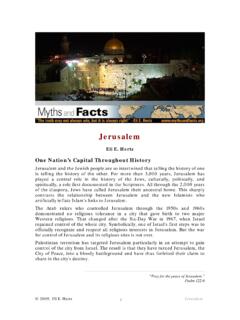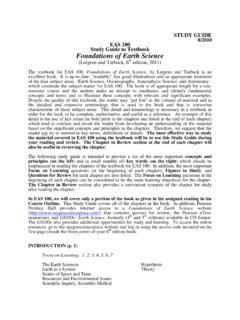Transcription of Classic Rock FYS 1221, Fall 2013 - Furman University
1 " Classic Rock". FYS 1221, fall 2013 . Dr. Daniel Koppelman; Office: DMB 7, 294-2094. Tuesday and Thursday, 10:00AM - 11:15AM. Herring Music Pavilion, Room 123E (Music Department Seminar Room). 4 credits Course Description: What is Classic Rock music? Does this term refer to a specific time period? A certain style? An influence? What makes a rock song a Classic ? . Through the development of critical listening skills and an awareness of cultural, sociological, and musicological contexts in the 1960's and 70's, this FYS attempts to answer these and related questions. Goals: 1. By developing a more specialized vocabulary and critical skills, students will become more sophisticated and discerning listeners;. 2. Through small-group discussion and independent research, students will develop a working definition of the following terms: " Classic ", "Rock music", and " Classic rock music".
2 3. Students will acquire an understanding of the cultural/sociological/musicological context within which Classic Rock developed;. 4. Based on an understanding of this context, and an increased musical sophistication, students will be able to convey - in a coherent and persuasive manner - why they believe a particular song is worthy of inclusion in a list of the "Top 10 Classic Rock Songs of all time.". 5. Students should be able to apply this newly developed esthetic system to a variety of contexts outside the rather narrow focus on Classic Rock ( , other forms of music, other art forms, etc). Grading: Two Individual presentations (10% each) 20%. 1. Directed analytical listening of a song (Based on Listening Guides in Schloss text). 2. A review of a published Top 10 list Two Group presentations (10% each) 20%.
3 1. History/significance of an individual artist or band Chosen in consultation with professor 2. Top 10 list . Presented in one of the following formats: Newspaper/magazine article Video Multimedia presentation One Quiz 15%. Terminology, short-answer, known/unknown listening One Class project 10%. Consensus Top 10 list (without professor's involvement). Class participation 10%. Final Exam 25%. Terminology, short-answer, essay, known/unknown listening Materials Course website: ~dkoppelman/fu/ Required Listening: Available online at Required Texts: Joesph G. Schloss, Larry Starr, and Christopher Waterman. Rock: Music, Culture, and Business. New York: Oxford University Press, 2012. Companion website: Theo Cateforis, ed. The Rock History Reader, 2nd ed. New York: Routledge, 2012. Optional Text: Paul Friendlander.
4 Rock & Roll: A Social History. Boulder, CO: Westview Press, 2006. (this text is also available in the Music Library). Optional Recordings/Videos: Available in Music Library Course Schedule The course schedule may be found on a separate handout, and on the course website. Plagiarism and Scholastic Honesty: All students should be familiar with the University 's policies on plagiarism and academic integrity. Please see the brochure you received at your advisor meeting and the academic integrity website for more information. ( resources/ ). If you have any questions about plagiarism, ask me. Disabilities: Please see the Disability Services website for information.









